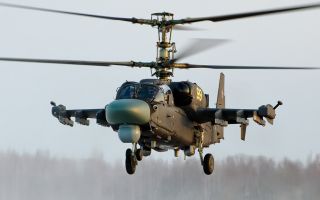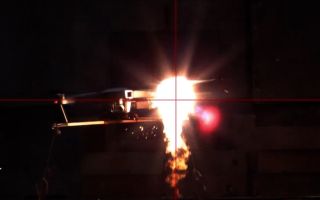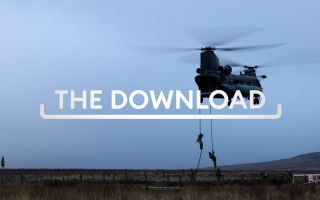Citizen soldiers prove their worth with largest Army Reserve deployment in 40 years
The Army Reserve is no longer just a back-up force – it's becoming increasingly vital to national defence.
With regular Army numbers at their lowest in decades, more and more of the burden is falling on part-time soldiers.
And many of them have been training out in Germany on the biggest deployment of reserve forces for 40 years.
I met up with a group of soldiers out in Germany who were battling to defend a critical river crossing point.
"Our objective was to sweep and clear the bridge, but we got held up by the enemy because they are well dug in at the scene," explained Corporal Jack Brown.
He's one of more than 820 soldiers deployed on Exercise Rhino Heart 25 in Germany. Like all the members of 19th Light Brigade, the UK's only fully reservist brigade, he has another job back home as a tower crane operator.
With regular Army numbers at a historic low, Rhino Heart is the largest deployment of the Army Reserve for four decades, as the nation's citizen soldiers ramp up their frontline readiness.
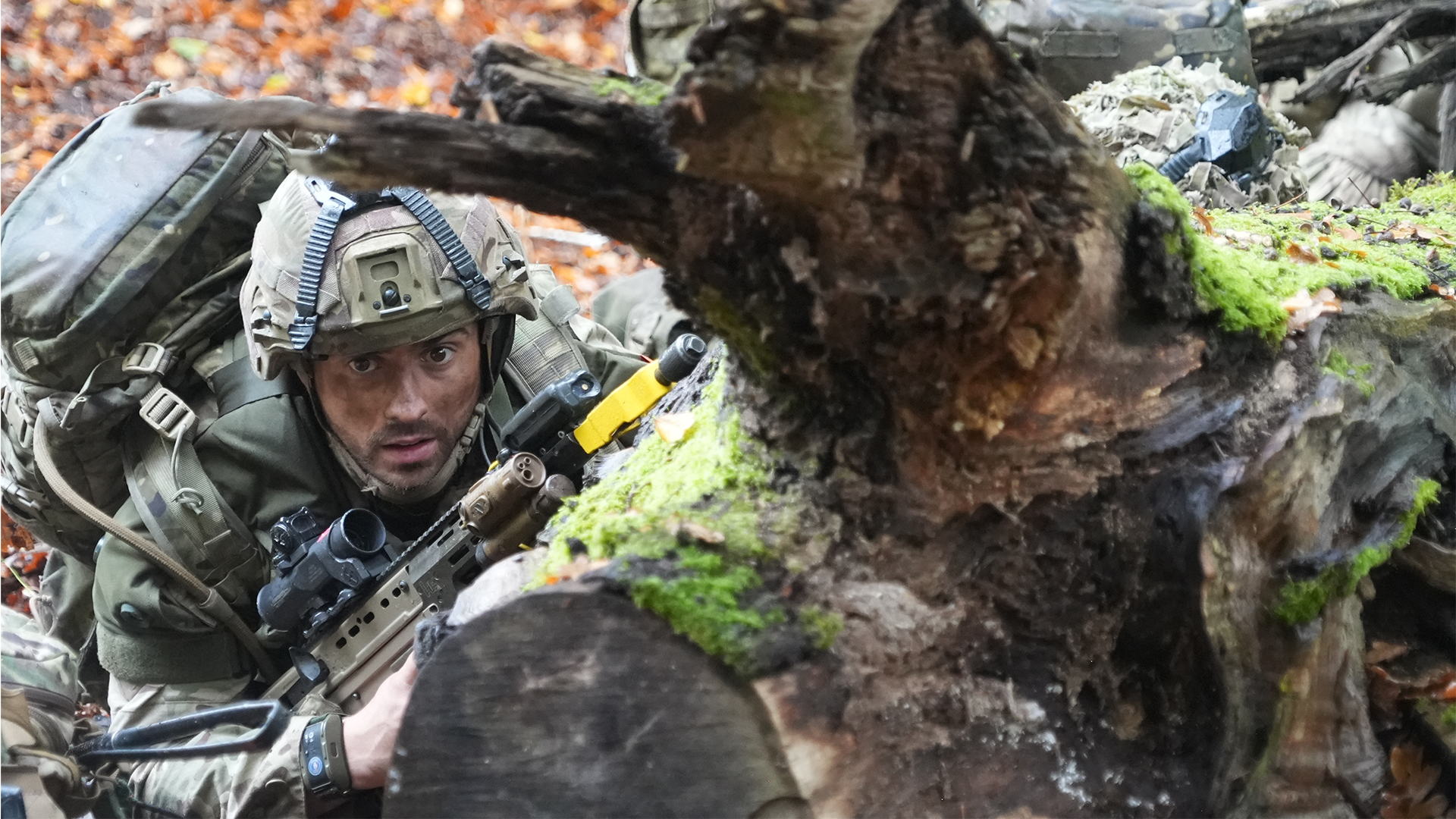
The tactics on Rhino Heart draw heavily from lessons learned in Ukraine with constant drone surveillance – a new challenge even for experienced soldiers.
"Any time there's a drone up there, you have to cover up, get under trees," said Cpl Brown. "You've got to get into cover, so it completely slows us down."
Some reservists are drone operators in their day jobs, and the Army wants to harness that expertise.
Lieutenant Colonel Alex Nancolas, Commanding Officer of 4th Battalion The Duke of Lancaster's Regiment, says this marks a turning point in how the Army Reserve trains and fights.
"Drones have clearly been with the UK and with society for 10, 15 years, but this is the first time the reservists have seen drones properly integrated at scale into training," he said.
"It means that all of a sudden they have to think up."
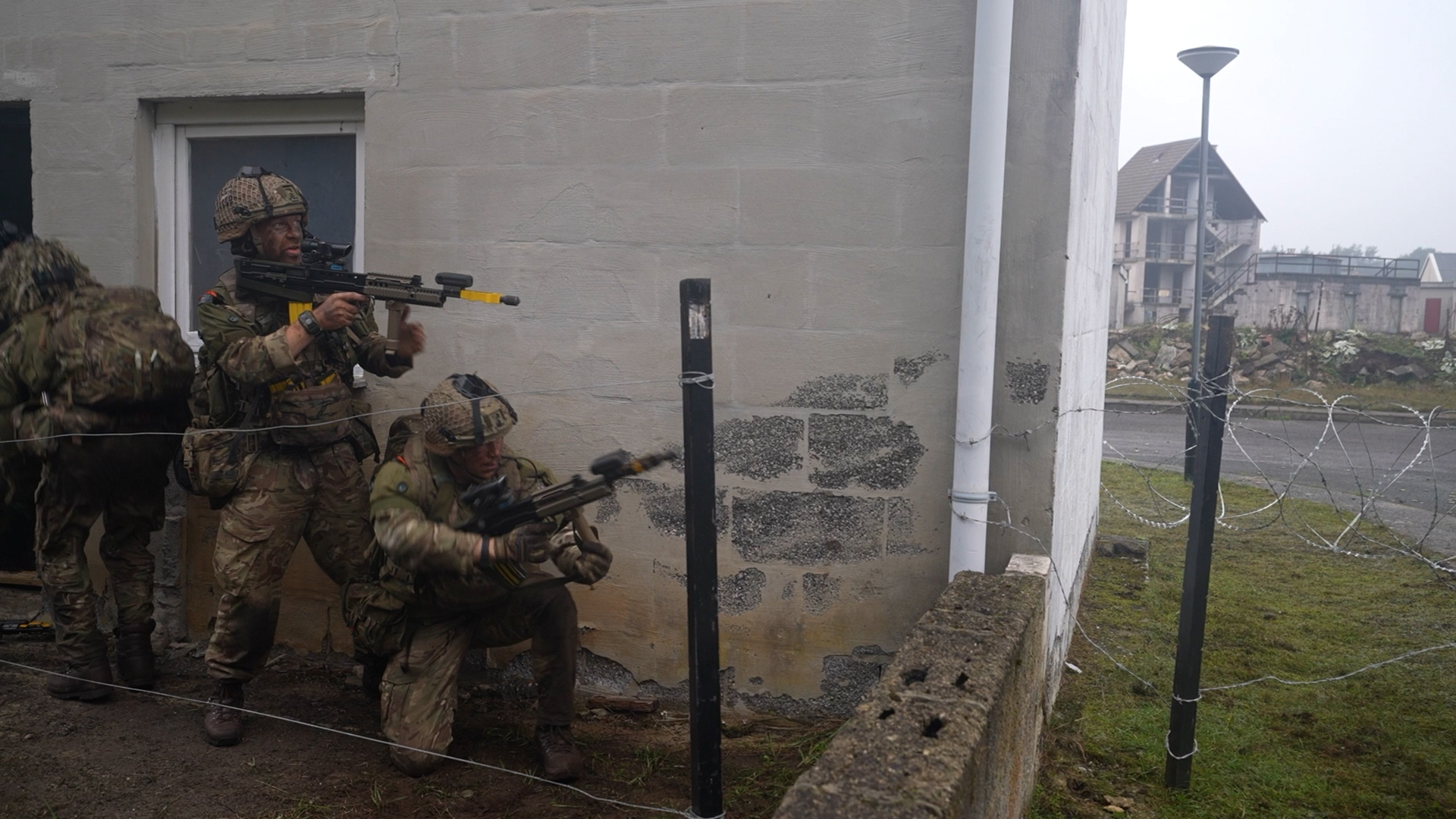
A former regular, Col Nancolas has now spent 10 years in the reserve. "It's notable the interest in the reserve. I don't think there's been a time when we've been that much in focus," he said.
As the scenario unfolds, the soldiers discover their communications have been hacked, forcing them off the radios and relying instead on shouted commands around the area.
Warrant Officer Class 2 Carl Brookes, an observer and mentor on the exercise, praised their quick thinking.
"The Platoon Sergeant identified names on the PRR [Personal Role Radio] he didn't recognise from his platoon or anyone in the company," he said.
"He took it on board that the PRR channel was compromised and at this point he stopped all his call signs using the PRR not to give any information away to the enemy."
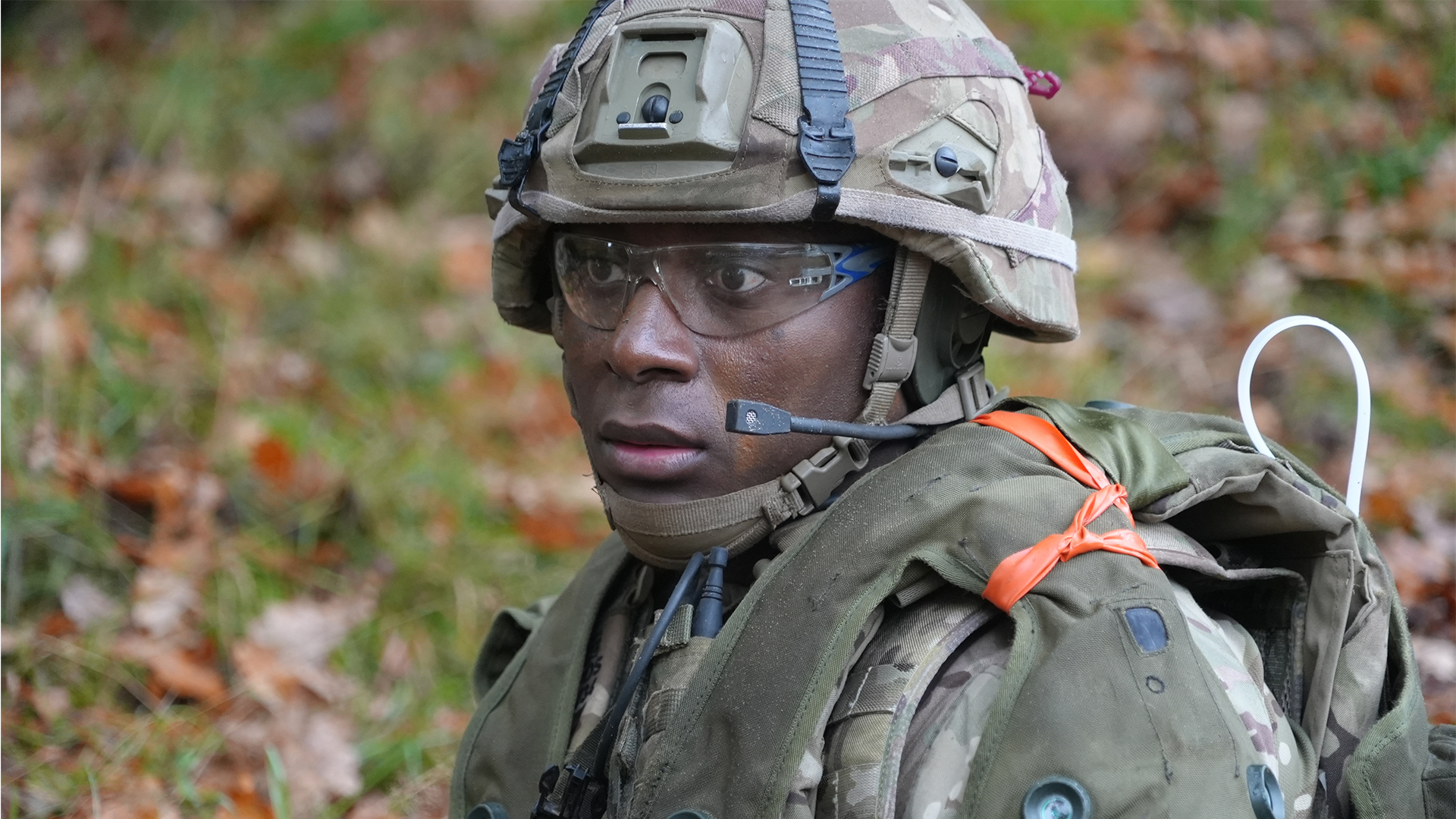
Elsewhere on the battlefield, Army medics from 206 (North West) Multi-Role Medical Regiment operate from former Cold War-era ammunition bunkers rather than field tents.
This is a direct reflection of how frontline medicine has evolved in response to drone and artillery threats.
"An ammo bunker like this gives ballistic protection and keeps the site clean," said Lieutenant Colonel Richard Fawcett. "It's exactly what we've seen in Ukraine – survival depends on concealment.
"The use of drones has become a massive issue, and having that added ballistic protection, if we can get it, so an ammo bunker such as this, is ideal for hiding the hospital so we don't get targeted and also trying to keep it as clean and as free from contamination as possible."
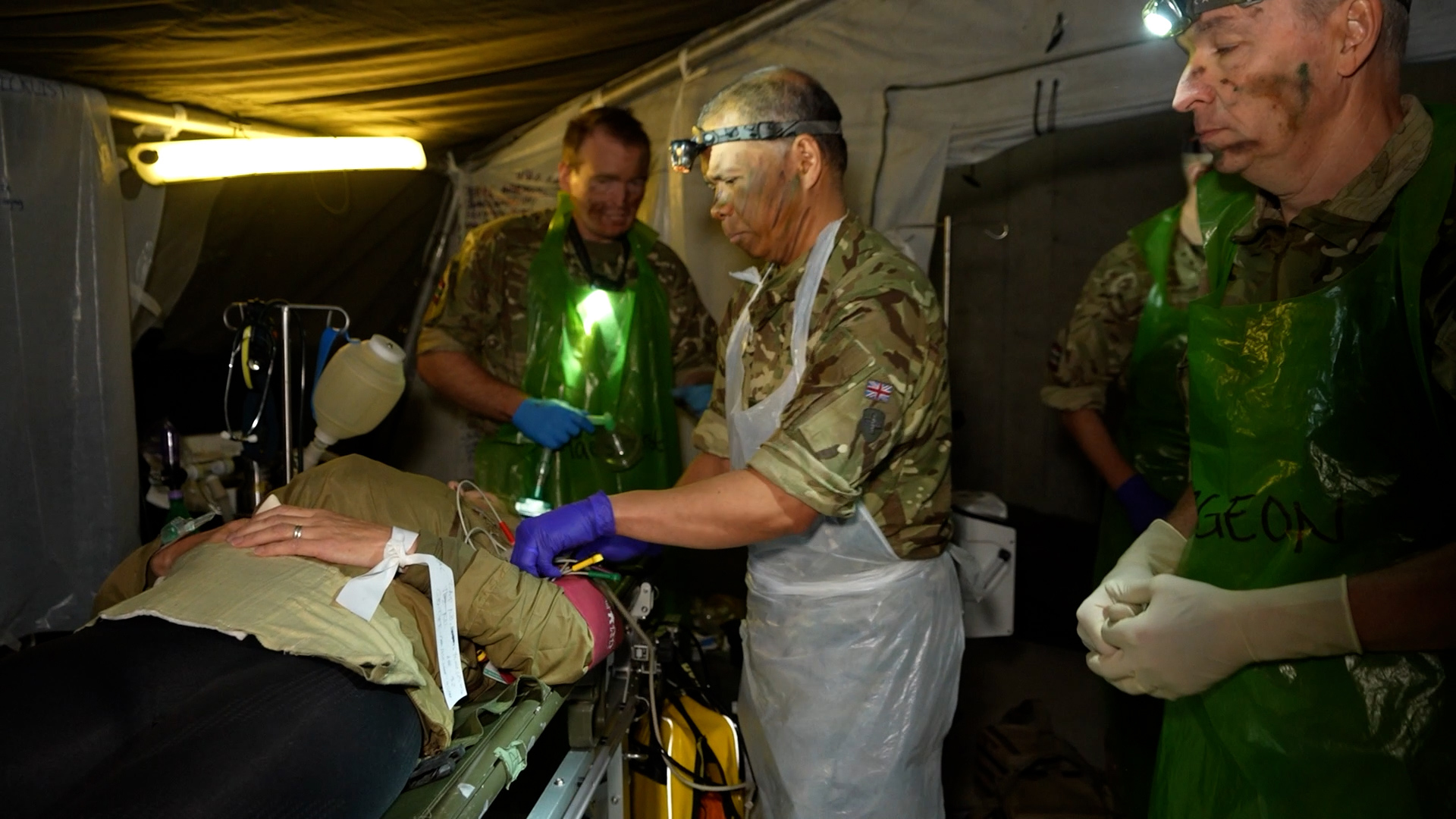
Canadian and Estonian reservists are embedded in the exercise headquarters, and Ensign Kristo Valgoe from the Estonian Defence Forces says his nation's border with Russia reinforces the value of national defence across the country.
"Especially after the war in Ukraine started. It really shows. And I'm really glad that Estonia takes it so seriously," he added.
For Estonia, taking defence seriously means conscription and compulsory national service. So could this be the answer for UK defence?
The senior commanding officer on Rhino Heart, Brigadier Lisa Brooks, believes a volunteer reserve offers more.
"If you're a volunteer, you're more likely to be a better soldier," she said. "Going down the conscription route would change our national dynamic – I'm not sure it would be the best idea."
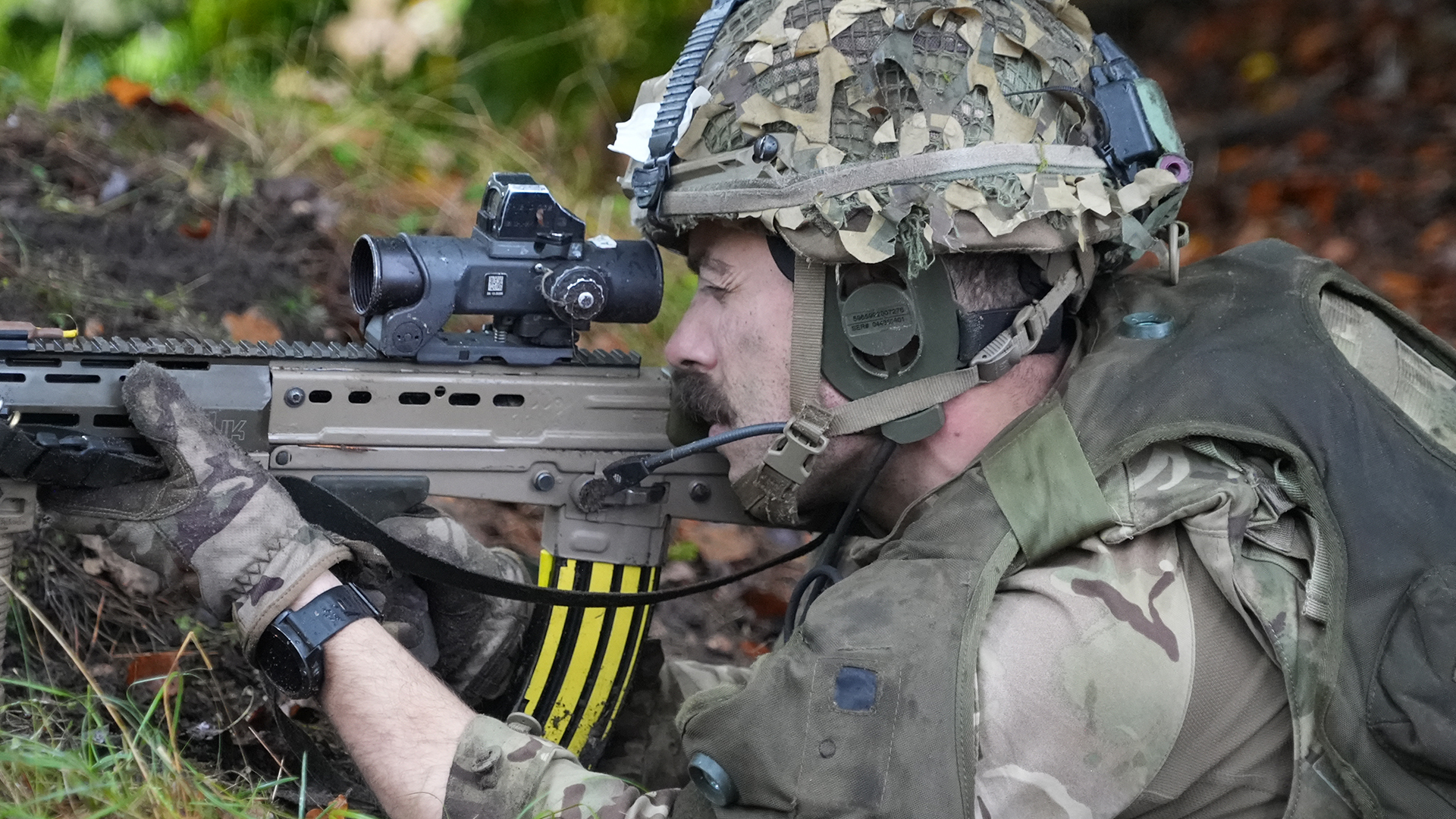
Brig Brooks says recent aggression from Russia has underlined why Britain needs a strong reserve and she says there's never been a better time to serve in it.
"Being a reservist will challenge and reward you," she added. "It gives you a sense of duty and purpose you can't find anywhere else."
19 Brigade brings together ex-regulars and civilians from every walk of life.
And for two weeks on a training area in Germany they get a chance to bond, train and develop for a role of ever-increasing importance to the UK's national defence.

